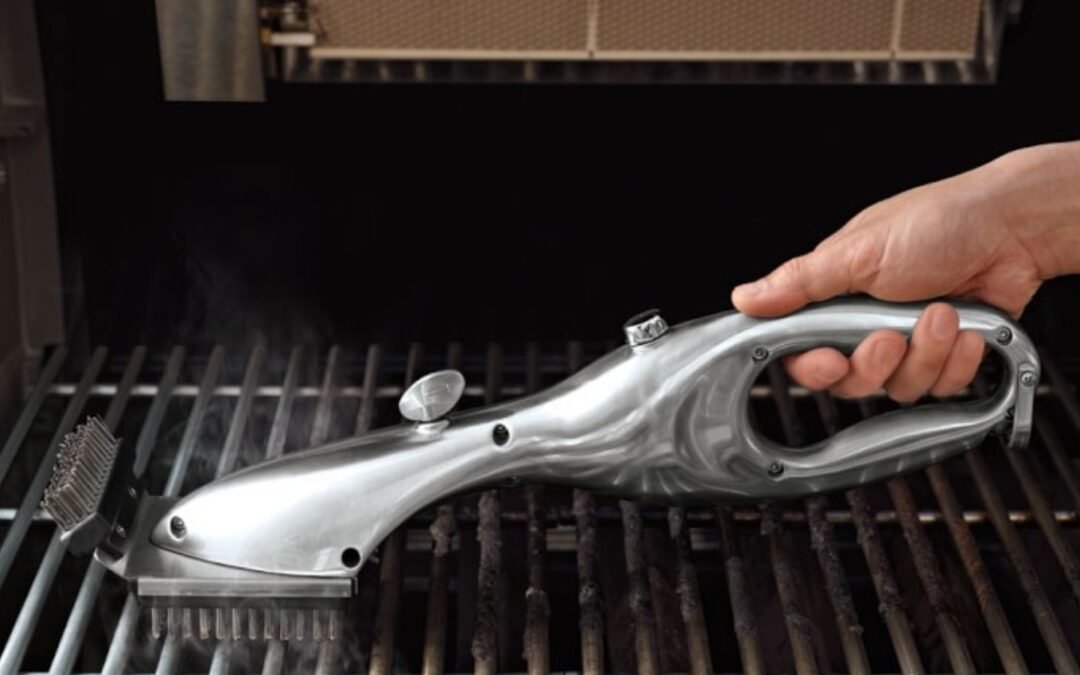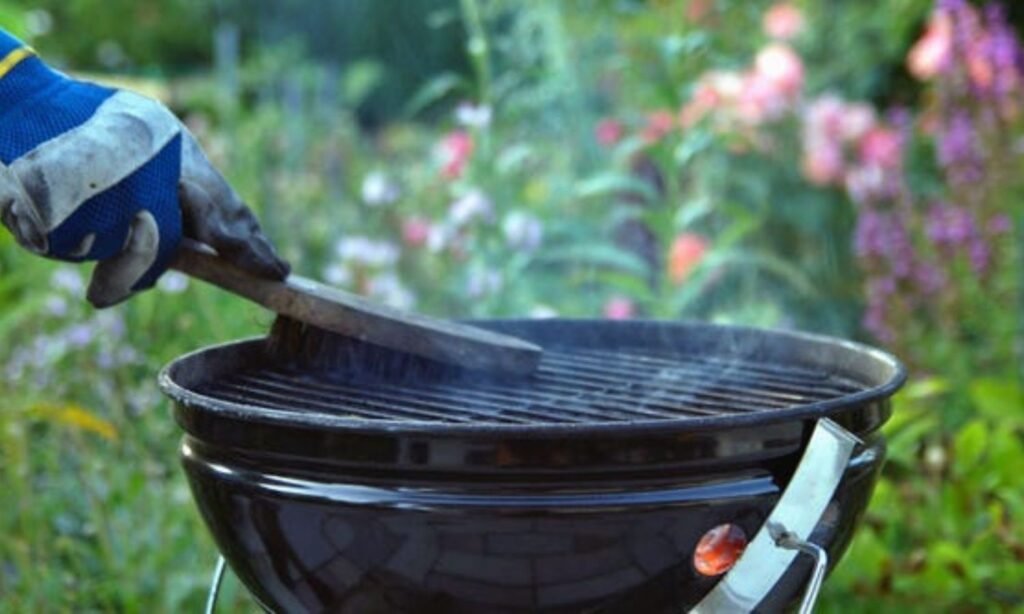Is your grill grimy? If so, you know how difficult it can be to keep your grill clean and fresh-smelling. when you have to scrub it by hand with a wire brush every time you want to use it. Thankfully, there are some great solutions to this problem, in the form of high-quality grill-cleaning brushes that make the job much easier and faster! In this guide, we’ll cover what makes a good grill cleaning brush, how to clean your grill with one, and which brushes are right for you.
What is a grill cleaning brush?
A grill cleaning brush is a cleaning tool used for getting rid of debris from all those hard-to-reach places on your grill. It looks like a wire brush with nylon bristles. Moreover, it’s usually sold alongside other grilling tools like spatulas and barbecue mitts. While not an essential item in your arsenal, it can make your life easier—especially when you start cooking food with delicate or semi-fluid ingredients (like seafood).
Let’s take a look at some of its uses. Although many people use their grill every time they cook outdoors. They aren’t always aware that they need to clean their grill before using it. The problem? Food particles stick to everything during cooking, which often results in unsightly spots after meals are over. This is especially true if you have a gas grill. While electric models require less maintenance since there are no open flames that accumulate ashes. Additionally, food still sticks during grilling sessions that leading to residue around these areas later on. Depending on what kind of meat you cook most often—and how long each piece stays on the grate before being removed. Grill cleaning needs vary quite a bit between homeowners who cook occasionally. Moreover, for those who do so daily or even several times per week.
How do I clean my grill using a grill-cleaning brush?
In order to clean your grill using a grill cleaning brush, you should brush off all of your grates before you take them off. After that allow them to soak in hot water. This is because, over time, the buildup can occur on your grates. Not only does it make it more difficult for you to cook food properly. But it also makes it harder for you and your guests (especially those with allergies) from enjoying delicious grilled meals.
Next, remove as much buildup as possible by using hot water and soap. After that, use a wire-bristled brush to scrub down any places that may still be tough. Wipe everything down one last time with hot water and then replace your grates (and enjoy that extra time!). Once again, we recommend washing your grill brushes in hot soapy water and allowing them to dry completely before storing or using them again. It’s also best to wash your brushes after every use if possible!
Grill cleaning brush which can help you thoroughly clean up all residue of burnt-on juices, oils, and sauces without damaging the surfaces. Even cast-iron safe! Do not bleach, put into the dishwasher, or submerge into any liquid. Allow the surface of silicone bristles to air dry completely after each cleaning session. The high heat-resistant silicone is designed to work on every grill type. We recommend keeping a few handy for your house and one in your BBQ tool bag when heading out to your favorite public spots.
The durable plastic handle with a hole through the center allows for easy hanging during storage (and keeps bristles together for easy transportation). If left untouched, residue will eventually burn onto grates requiring tougher materials like sandpaper. That’s why we recommend investing in a wire grill brush and using it often. Moreover, Treat it right and your brushes should last 2-3 years depending on the frequency of use.
How often should I clean my grill?
This question depends on how often you grill, and there’s no right answer for everyone. If you use your grill every day, cleaning it every day is probably necessary. Additionally, grills that are used only a few times a month may only need a monthly cleaning. Keep in mind that if your grill is going unused for longer than a couple of weeks. It’s a good idea to give it a light cleaning just so any built-up food or gunk doesn’t cause problems when you start using it again. Obviously, don’t try cooking meat on an unclean grill! And remember: NEVER USE ALCOHOL OR ANY OTHER FLAMMABLE LIQUID TO CLEAN YOUR GRILL.
The high heat from your grill will ignite any liquid you spray on it, creating quite a dangerous situation. Be safe and non-flammable. Also, be sure to wear gloves while cleaning because burns from hot grease happen pretty quickly—and they hurt like hell. Some people find success with wearing gloves while cooking too since grease can drip down their arms over time, especially with chicken skin leftovers from their meal. Although you shouldn’t do it. Some people even decide to cook without mitts on. We wouldn’t recommend it though since drops of grease are super-hot. As far as brushes go. There’s really not much more to say other than picking one up won’t cost you much money at all.
Which types of brushes are available?
There are a number of different brush types available, each with its own pros and cons. We’ll break down your options here. But it’s important to understand that no matter which option you choose, all grills need some type of cleaning! Here’s a rundown of your choices:
1) Wire bristles: Your standard grill brush is made from thin metal wires designed to sift through food remnants. These work well in most cases. But they can also scratch delicate porcelain or grill finishes easily if not handled with care.
2) Caged nylon bristles: If you’re looking for something more heavy-duty than what you get with wire-bristle grill brushes, then caged nylon models might be what you’re looking for. They’re usually outfitted with two rows of plastic-caged nylon tips that help sift through residue more effectively. Than their wire counterparts without scratching up your cookware.
3) Woodblocks: Wood is an excellent natural surface material because it doesn’t conduct heat like other materials (like stainless steel), meaning it won’t warp or melt under high temperatures. However, wood has its drawbacks as well. It doesn’t hold onto stuck food particles as well as metal does.
4) Silicone rubberized block: The last category isn’t really a brush at all – silicone rubberized blocks look similar to wood sticks except for one big difference – silicone rubberized bristles provide superior sweeping performance even when wet.





